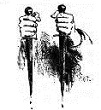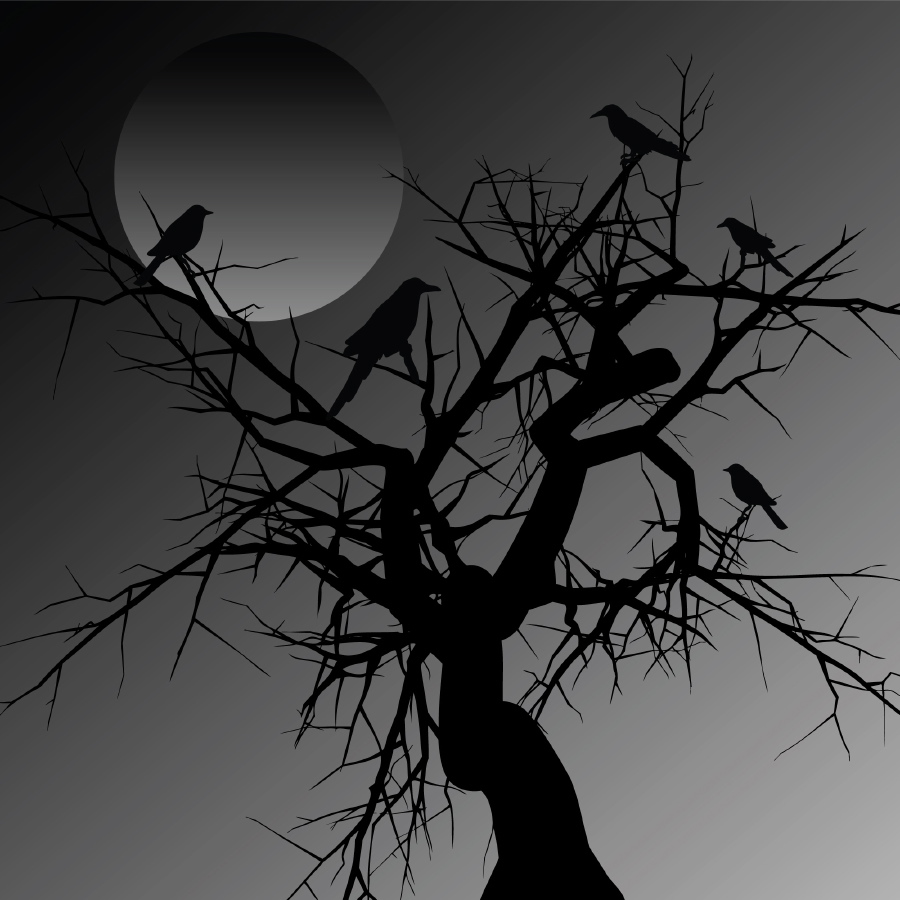| directory |
| home | contact |
|
|||||||||||||||
| search | |||||||||||||||
Shakespeare on Omens and PropheciesA collection of Shakespearean quotations on felicitous events and coming calamities.Please click on the links to each play for explanatory notes. ______ When clouds appear, wise men put on their cloaks; When great leaves fall, the winter is at hand; When the sun sets, who doth not look for night? (Richard III, 2.3) The southern wind Doth play the trumpet to his purposes, And by his hollow whistling in the leaves Foretells a tempest and a blustering day. (1 Henry IV, 5.1) Well may it sort that this portentous figure Comes armed through our watch; so like the king That was and is the question of these wars. (Hamlet, 1.1), Bernardo to Horatio, speaking of Hamlet's father's ghost. As stars with trains of fire and dews of blood, Disasters in the sun; and the moist star Upon whose influence Neptune's empire stands Was sick almost to doomsday with eclipse: And even the like precurse of fierce events, As harbingers preceding still the fates And prologue to the omen coming on, Have heaven and earth together demonstrated Unto our climatures and countrymen. (Hamlet, 1.1) At my nativity The front of heaven was full of fiery shapes, Of burning cressets; and at my birth The frame and huge foundation of the earth Shaked like a coward. (1 Henry IV, 3.1) Move in that obedient orb again Where you did give a fair and natural light, And be no more an exhaled meteor, A prodigy of fear and a portent Of broached mischief to the unborn times? (1 Henry IV, 5.1) Beware the ides of March. (Julius Caesar, 1.2) No natural exhalation in the sky, No scope of nature, no distemper'd day, No common wind, no customed event, But they will pluck away his natural cause And call them meteors, prodigies and signs, Abortives, presages and tongues of heaven. (King John, 3.4) Calpurnia here, my wife, stays me at home: She dreamt to-night she saw my statua, Which, like a fountain with an hundred spouts, Did run pure blood: and many lusty Romans Came smiling, and did bathe their hands in it: And these does she apply for warnings, and portents, And evils imminent; and on her knee Hath begg'd that I will stay at home to-day. (Julius Caesar, 2.2) These late eclipses in the sun and moon portend no good to us. (King Lear, 1.2) Is this a dagger which I see before me, The handle toward my hand? Come, let me clutch thee. I have thee not, and yet I see thee still. Art thou not, fatal vision, sensible To feeling as to sight? (Macbeth, 2.1) The night has been unruly: where we lay, Our chimneys were blown down; and, as they say, Lamentings heard i' the air; strange screams of death, And prophesying with accents terrible Of dire combustion and confused events New hatch'd to the woeful time: the obscure bird Clamour'd the livelong night: some say, the earth Was feverous and did shake. (Macbeth, 2.3) Yesterday the bird of night did sit, Even at noon-day, upon the market-place, Hooting and shrieking. (Julius Caesar, 1.3) By the pricking of my thumbs, Something wicked this way comes. (Macbeth, 4.1) Alas, why gnaw you so your nether lip? Some bloody passion shakes your very frame: These are portents; but yet I hope, I hope, They do not point on me. (Othello, 5.2) Bloody thou art; bloody will be thy end. (Richard III, 4.4) Alack, our terrene moon Is now eclipsed; and it portends alone The fall of Antony! (Antony and Cleopatra, 3.13) There is some ill a-brewing towards my rest, For I did dream of money-bags to-night. (The Merchant of Venice, 2.5) The owl shriek'd at thy birth,--an evil sign; The night-crow cried, aboding luckless time; Dogs howl'd, and hideous tempest shook down trees; The raven rook'd her on the chimney's top, And chattering pies in dismal discords sung. (3 Henry VI, 5.6) Before the times of change, still is it so: By a divine instinct men's minds mistrust Ensuing dangers; as by proof, we see The waters swell before a boisterous storm. (Richard III, 2.3) Be lion-mettled, proud, and take no care Who chafes, who frets, or where conspirers are: Macbeth shall never vanquish'd be until Great Birnam wood to high Dunsinane hill Shall come against him. (Macbeth, 4.1) How bloodily the sun begins to peer Above yon busky hill! the day looks pale At his distemperature. (1 Henry IV, 5.1) When beggars die, there are no comets seen; The heavens themselves blaze forth the death of princes. (Julius Caesar, 2.2) The bay-trees in our country are all wither'd And meteors fright the fixed stars of heaven; The pale-faced moon looks bloody on the earth And lean-look'd prophets whisper fearful change. (Richard II, 2.4) Away from the light steals home my heavy son, And private in his chamber pens himself, Shuts up his windows, locks far daylight out And makes himself an artificial night: Black and portentous must this humour prove, Unless good counsel may the cause remove. (Romeo and Juliet, 1.1) ______________ More Resources |
More to Explore |
©1999-2021 Shakespeare Online. All Rights Reserved.
 "The poet's warrant for thus surrounding his two great dramas [Macbeth and Hamlet] with a subtile atmosphere of the occult, the mysterious, the supernatural, is found in the fact that human life itself is so invested. Man's life is lived out with the physical eye guiding his way through this natural world, and with the mind's eye fixed upon and ever glancing fearfully at the thick-crowding shadows of an unknown world around him." H. M. Doak.
"The poet's warrant for thus surrounding his two great dramas [Macbeth and Hamlet] with a subtile atmosphere of the occult, the mysterious, the supernatural, is found in the fact that human life itself is so invested. Man's life is lived out with the physical eye guiding his way through this natural world, and with the mind's eye fixed upon and ever glancing fearfully at the thick-crowding shadows of an unknown world around him." H. M. Doak.  Macbeth was Abraham Lincoln's favorite play. The well-read president would often entertain guests by quoting his favorite passages. Eerily, less than a week before his assassination at the hands of John Wilkes Booth – himself an actor who had played Macbeth to packed audiences – Lincoln became fixated on these fateful lines:
Macbeth was Abraham Lincoln's favorite play. The well-read president would often entertain guests by quoting his favorite passages. Eerily, less than a week before his assassination at the hands of John Wilkes Booth – himself an actor who had played Macbeth to packed audiences – Lincoln became fixated on these fateful lines:  The people of Shakespeare's England did not need a special night each year devoted to chills and horrors because demons, ghosts and witches were part of their everyday lives. So great was the distress over witchcraft that King James himself wrote Daemonologie, a guide to help his subjects detect and deal with those "detestable slaves of the Devil." James' fascination with the occult undoubtedly shaped Shakespeare's
The people of Shakespeare's England did not need a special night each year devoted to chills and horrors because demons, ghosts and witches were part of their everyday lives. So great was the distress over witchcraft that King James himself wrote Daemonologie, a guide to help his subjects detect and deal with those "detestable slaves of the Devil." James' fascination with the occult undoubtedly shaped Shakespeare's